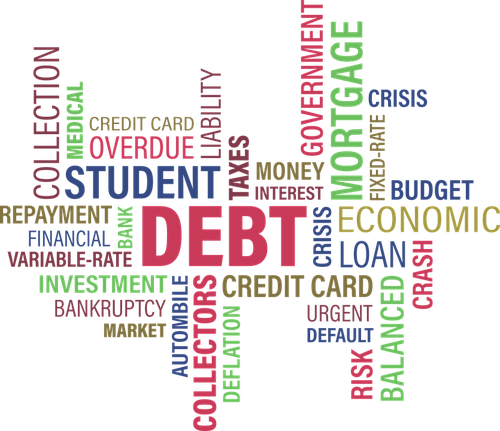
PROS AND CONS OF FILING FOR BANKRUPTCY: CHAPTER 7
 Bankruptcy is a daunting word. It conjures imagery most people would likely prefer to avoid if possible. A lot of the anxiety produced by discussions of bankruptcy come from a basic misunderstanding of what the process is, why it is important and how it can be used to protect your finances. One might fairly ask how going bankrupt can protect finances. The answer is that bankruptcy is not the legal term for someone with no money.
Bankruptcy is a daunting word. It conjures imagery most people would likely prefer to avoid if possible. A lot of the anxiety produced by discussions of bankruptcy come from a basic misunderstanding of what the process is, why it is important and how it can be used to protect your finances. One might fairly ask how going bankrupt can protect finances. The answer is that bankruptcy is not the legal term for someone with no money.
The truth is, any economic system that relies even partially on credit must have a mechanism for restoring the practical financial viability of someone who reaches a point where their debts so far exceed their assets and income they have no means to repay their debts. Bankruptcy laws are arranged into several chapters, each of which is written to address a certain set of circumstances. One of those is called Bankruptcy Chapter 7.
What's Good About Bankruptcy?
A person or business facing potentially dozens of creditors with no means of paying them would certainly experience high levels of stress, which isn’t good for anyone. Financial stress can impact many if not all areas of a person’s life. So, the first thing filing for bankruptcy does is put an automatic stay on all legal proceedings against the petitioner. All collection activities, lawsuits, judgments, liens and so forth are frozen throughout the jurisdiction so the petitioner can avail themselves of the orderly processes of the court.
For creditors, this is preferable to chasing a defendant for payment. If there is any hope they will be paid, either partially or fully, the court can see to it there is a fair settlement.
In chapter 7 bankruptcy, the ultimate goal of the case is to liquidate all the petitioner's assets and then distribute them to creditors and interested parties according to the priorities outlined in the bankruptcy code. Some assets are "exempt," meaning they can't be liquidated. The good news is that once a bankruptcy is adjudicated, all claims against the petitioner are dismissed, and they can start fresh.
What's Not Good About Bankruptcy?
Two of the key issues facing a petitioner in bankruptcy court are their income and assets. In certain circumstances, they may be either offered the option or be required to file a Chapter 13 bankruptcy instead. This is a type of case similar to the corporate "Chapter 11" you have probably heard discussed occasionally in the news. It is a "restructuring" that allows a debtor to repay their debts over time.
In Bankruptcy Chapter 7, all non-exempt assets must be placed in the custody of a "Trustee" whose job it is to distribute those assets to creditors once the case has been adjudicated. This may not be pleasant for the debtor, as those assets might include bank accounts, investments and so forth.
Bankruptcy can have a lasting negative impact on a person's credit. For all intents and purposes, a bankruptcy is one of the darkest marks that can appear on a credit report. They remain on your report for seven years and can profoundly impact your ability to obtain credit, a mortgage, a credit card or even a bank account.
When Should Someone Consider Bankruptcy?
Everyone's financial situation is different. The best course of action is to consult a qualified bankruptcy attorney. There are many details that need to be considered before filing, including a comprehensive analysis of your assets and liabilities, the legal details of each of your debts and whether you qualify for a Chapter Seven or other type of bankruptcy filing.
Filing a Chapter Seven bankruptcy case doesn't have to be a nightmare. As long as you are aware of the process and focus on your goals, you will be able to avail yourself of the benefits and restore your finances. For a free consultation, contact the offices of John E. Pytte, debt relief specialist, today.